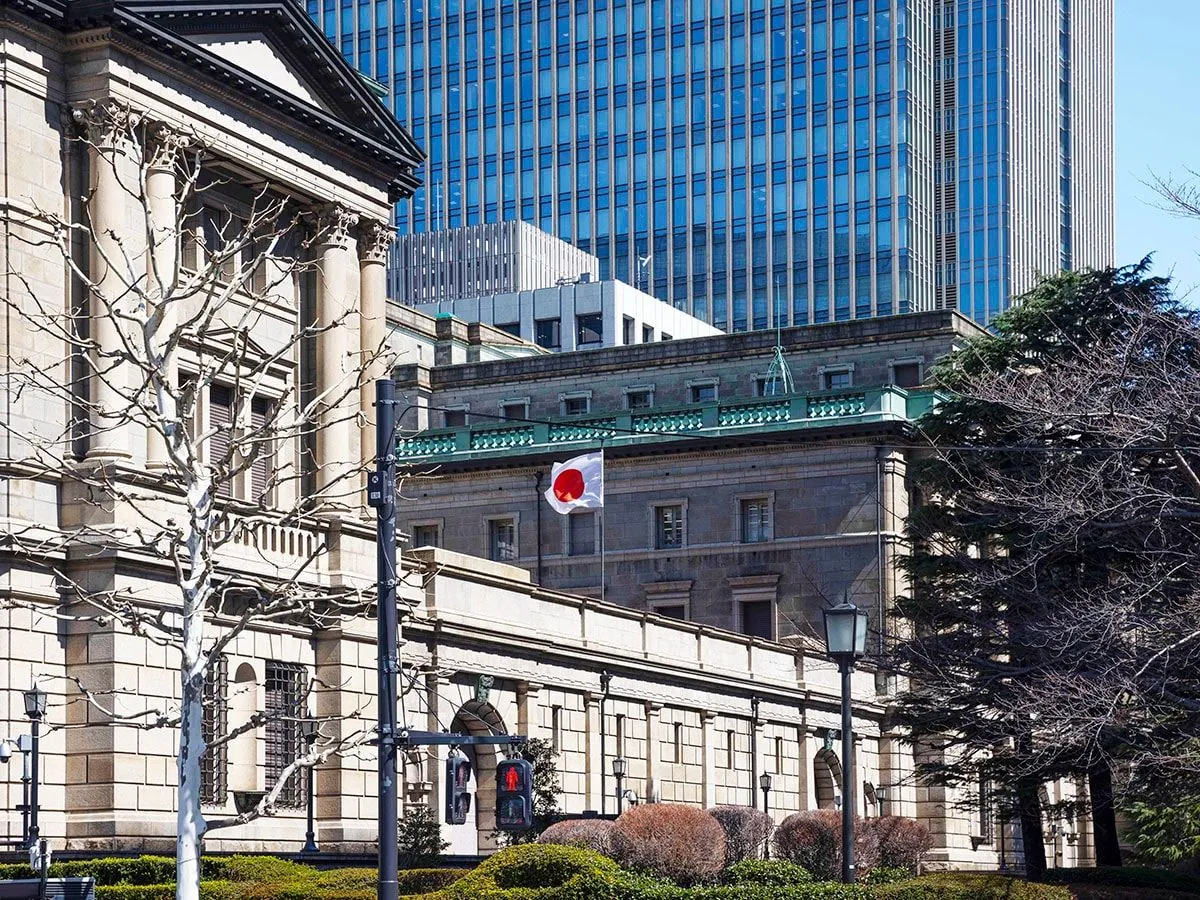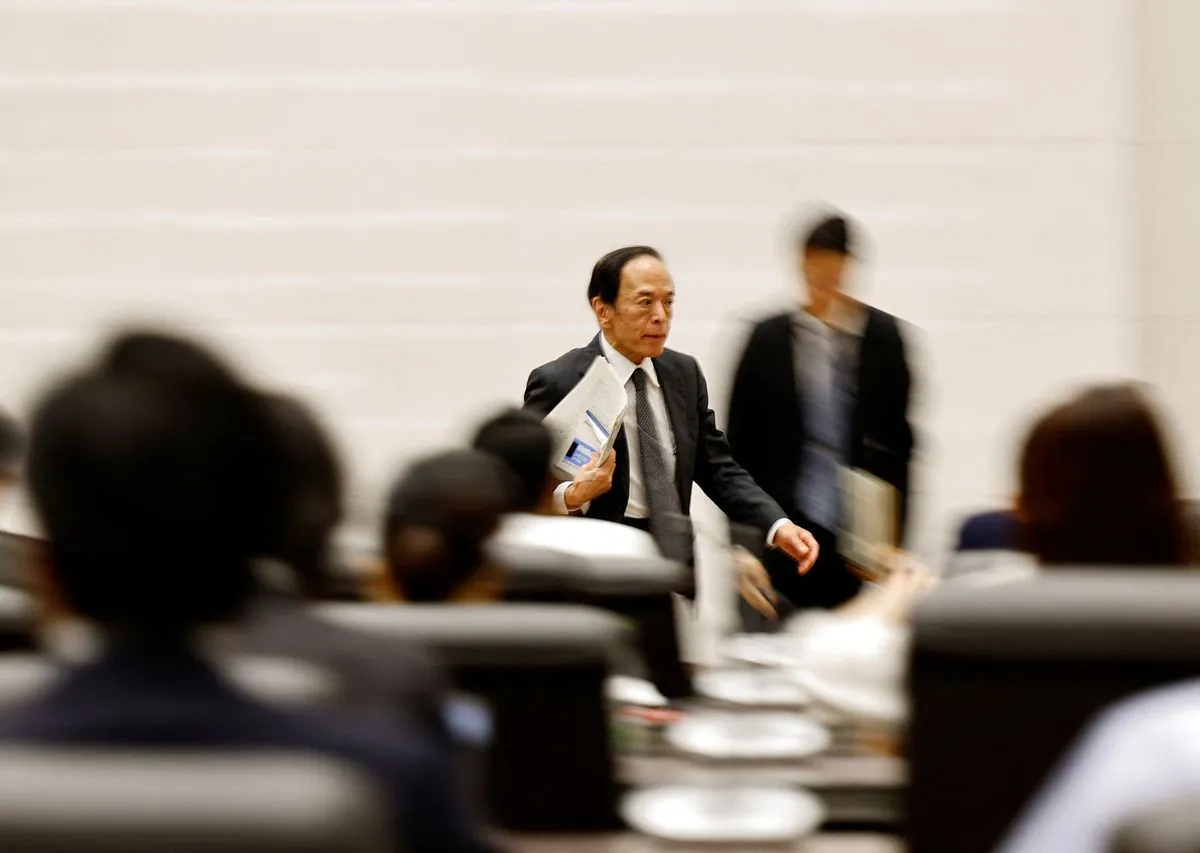BOJ Policymakers Urge Caution on Rate Hikes Amid Global Uncertainties
Bank of Japan officials express concern over unstable markets and U.S. economic outlook. September meeting maintains steady rates, signaling a cautious approach to monetary policy adjustments.

In a recent development, Bank of Japan (BOJ) policymakers have emphasized the need for a cautious approach to interest rate adjustments, as revealed in the summary of their September meeting. This stance comes amid growing concerns over global economic uncertainties and volatile financial markets.
The BOJ, established in 1882, plays a crucial role in managing Japan's economy, the world's third-largest by nominal GDP. As the primary institution responsible for maintaining price stability, the central bank's decisions have far-reaching implications for both domestic and international markets.
One BOJ member highlighted the importance of closely monitoring overseas developments and market trends before considering further monetary policy adjustments. They stated:
"Overseas economic uncertainties have heightened. We should scrutinise overseas and market developments closely for the time being. In terms of further adjustment to our monetary support, it should be done when such uncertainties are reduced."
This cautious sentiment reflects the BOJ's awareness of Japan's export-oriented economy and its sensitivity to global economic fluctuations. The central bank's approach aligns with its history of implementing innovative monetary policies, such as being the first to introduce quantitative easing in 2001 and adopting negative interest rates in 2016.
Another policymaker expressed concern that raising rates at this juncture might be perceived as the beginning of a full-fledged monetary tightening cycle, which they deemed undesirable given the current economic landscape. This perspective underscores the delicate balance the BOJ must maintain in its policy decisions.

At the September meeting, the BOJ maintained short-term rates at 0.25%, demonstrating its commitment to a measured approach. The central bank's governor indicated that there was no immediate rush to increase borrowing costs, signaling a willingness to carefully assess the potential fallout from global economic uncertainties.
This decision comes against the backdrop of Japan's unique economic challenges, including a prolonged struggle with deflation spanning over two decades and one of the world's highest debt-to-GDP ratios. The BOJ's cautious stance also reflects its ongoing efforts to achieve its 2% inflation target, a goal that has proven elusive despite years of ultra-loose monetary policy.
As the BOJ navigates these complex economic waters, its decisions continue to influence not only Japan's economy but also other Asian markets. The central bank's approach to monetary policy in the coming months will be closely watched by economists and investors worldwide, as it could provide insights into the broader global economic outlook.
With eight monetary policy meetings held annually, the BOJ's next decisions will be crucial in shaping Japan's economic trajectory. As the nation grapples with an aging population and the lingering effects of the asset price bubble of the late 1980s, the central bank's role in fostering stability and growth remains more critical than ever.


































